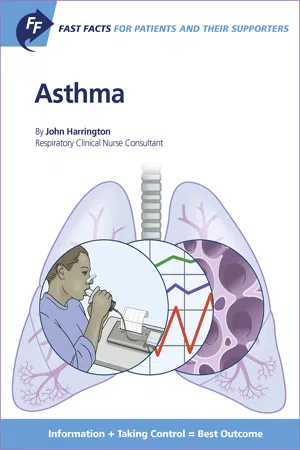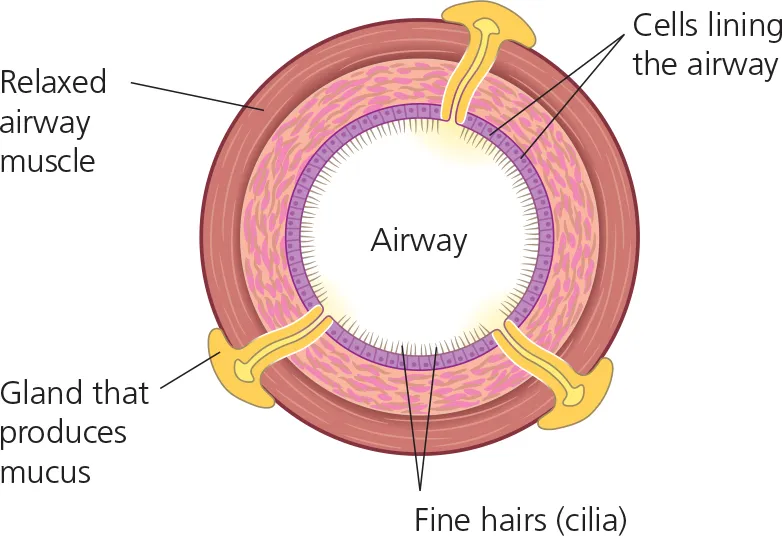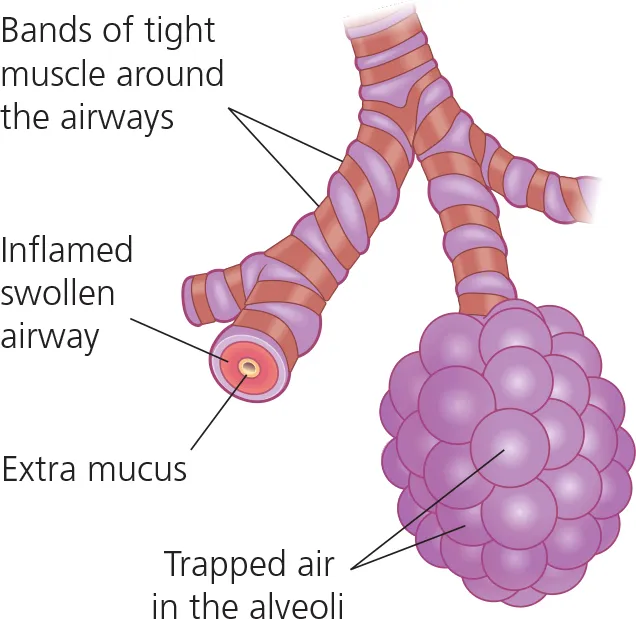
Fast Facts: Asthma for Patients and their Supporters
Information + Taking Control = Best Outcome
- 48 pages
- English
- ePUB (mobile friendly)
- Available on iOS & Android
Fast Facts: Asthma for Patients and their Supporters
Information + Taking Control = Best Outcome
About this book
Asthma is a long-term condition that reduces the amount of air flowing in and out of the lungs. Whether your symptoms are mild, difficult-to-control or severe, it is important to be in control of your asthma. The information in this booklet is designed to help you and your family better understand the condition, what triggers it and how to treat it. It includes clear instructions for good inhaler technique and emphasizes the importance of having an Asthma Action Plan in place so that you know: • when and how often to take your treatment • how to tell if your symptoms are getting worse • what to do when your symptoms get worse. With simple clear illustrations, explanation of medical terms and space to write down the questions you want to ask your doctor or nurse, this resource will help you take control of your asthma. Contents: • What is asthma? • What causes asthma? • What are the symptoms of asthma? • What are the tests for asthma? • What medications are used to treat asthma? • Inhalers and spacers • Your Asthma Action Plan • How do I prevent an asthma attack? • How do I manage an asthma attack? • Difficult-to-control asthma • Severe asthma • Treatment of severe asthma • Exercise-induced asthma • Occupational asthma • Asthma in older people • Asthma in pregnancy • Asthma in children
Frequently asked questions
- Essential is ideal for learners and professionals who enjoy exploring a wide range of subjects. Access the Essential Library with 800,000+ trusted titles and best-sellers across business, personal growth, and the humanities. Includes unlimited reading time and Standard Read Aloud voice.
- Complete: Perfect for advanced learners and researchers needing full, unrestricted access. Unlock 1.4M+ books across hundreds of subjects, including academic and specialized titles. The Complete Plan also includes advanced features like Premium Read Aloud and Research Assistant.
Please note we cannot support devices running on iOS 13 and Android 7 or earlier. Learn more about using the app.
Information
What is asthma?
Understanding your airways

|
The airways are complicated structures made up of several layers.
Each tube is lined by cells that have fine hairs (cilia) that keep the airway clean.
|
 |
 |
In asthma, the airways become narrower because:
• the muscle around the airways tightens
• the lining of the airways become inflamed and swollen
• mucus builds up in the airway.
In addition, air gets trapped in the alveoli, stopping the proper exchange of oxygen and carbon dioxide.
|
Why me?
Different types of asthma
Severity of asthma

What causes asthma?

Risk factors
Table of contents
- Cover
- First, the facts ...
- Contents
- 1 What is asthma?
- 2 What causes asthma?
- 3 What are the symptoms of asthma?
- 4 What are the tests for asthma?
- 5 What medications are used to treat asthma?
- 6 Inhalers and spacers
- 7 Your Asthma Action Plan
- 8 How do I prevent an asthma attack?
- 9 How do I manage an asthma attack?
- 10 Severe asthma
- 11 Treatment of severe asthma
- 12 How can I help myself?
- 13 Exercise-induced asthma
- 14 Occupational asthma
- 15 Asthma in pregnancy
- 16 Asthma in children
- Useful online resources
- Glossary
- Copyright